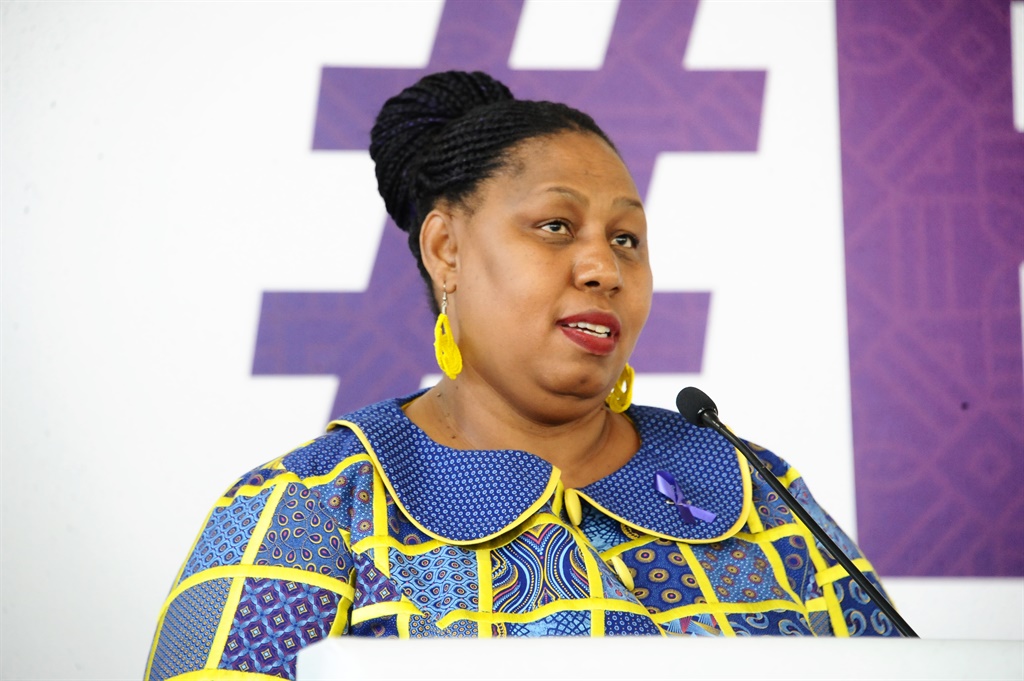
- As part of a campaign against foetal alcohol spectrum disorders, Social Development Deputy Minister Hendrietta Bogopane-Zulu visited Boitekong in North West.
- The township is one of the areas where alcohol consumption is very high.
- Unemployment, poverty and lack of support from family members have been given as reasons why young pregnant women turn to alcohol.
Lack of family support, high levels of poverty, and the absence of partners.
These were some of the reasons residents of Boitekong township in the North West gave to Social Development Deputy Minister Hendrietta Bogopane-Zulu for why young women consumed alcohol while pregnant.
Bogopane-Zulu visited the area as part of the 9-9-9 Foetal Alcohol Spectrum Disorders (FASD) campaign. Boitekong is believed to be one of the areas in South Africa with high alcohol consumption.
The campaign, which is in line with the National Drug Master Plan 2019 to 2024, is aimed at building a society free of substance abuse. North West Social Development MEC Boitumelo Moiloa and North West Health MEC Madoda Sambatha also attended the event in Boitekong.
The purpose of the campaign was to educate young women on the adverse effects of alcohol consumption during pregnancy and allowed residents to shed light on the challenges driving them to alcoholism.
A parent in the community of Boitekong says The Bill of rights gives children too much freedom, hence the abuse of alcohol even during pregnancy. He says the lack of jobs in South Africa also leads to stress that pushes young people to alcoholism.#FASD#FASDfreeMzansi pic.twitter.com/pXs5XPI2DX
— Social Development (@The_DSD) September 5, 2022
Social development department spokesperson Lumka Oliphant said although several platinum mining companies surrounded Boitekong, the area had a high rate of unemployment and poverty.
The Deputy Minister of Social Development explains the negative effects alcohol has on one's body. #FASD pic.twitter.com/2cmBzcai9U
— Social Development (@The_DSD) September 5, 2022
During the event with the deputy minister, she said residents expressed how the lack of family support, high levels of poverty, and the absence of partners were the reasons for young women consuming alcohol during pregnancy.
"The prevalence of alcohol abuse in the township is said to be so bad that even children as young as five years old can easily get access to alcohol with no parental supervision," said Oliphant.
Kwapeng from the community of Tlhabane in the North West explains that drinking has become a norm in society and people are pressured to drink in order to not be mocked. #FASD pic.twitter.com/c5qSCdCaLD
— Social Development (@The_DSD) September 5, 2022
Basetsana Tlalang, 28, a resident of Boitekong who is four months pregnant, said children would be spotted at a tavern or shebeen with their mothers.
"Tavern owners wouldn't care to intervene. There is a problem here," she said.
Tlalang said she consumed alcohol during the first few weeks of her pregnancy but had stopped. She urged other pregnant women to stop drinking alcohol and doing drugs immediately after realising they are pregnant.
"I stopped drinking alcohol entirely after I confirmed that I was pregnant, and I am attending antenatal and information sessions at the clinic," she said.
She added that most pregnant teenagers in her area were orphans and had no adult support.
Bogopane-Zulu said young pregnant girls should look after themselves for the sake of their unborn babies.
"You can only help me to fight FASD in this community by staying away from alcohol when you are pregnant. No amount of alcohol is safe for an unborn child," she added.
Oliphant said the 9-9-9 campaign would continue in provinces like Limpopo, Mpumalanga, the Eastern Cape and KwaZulu-Natal this week.

